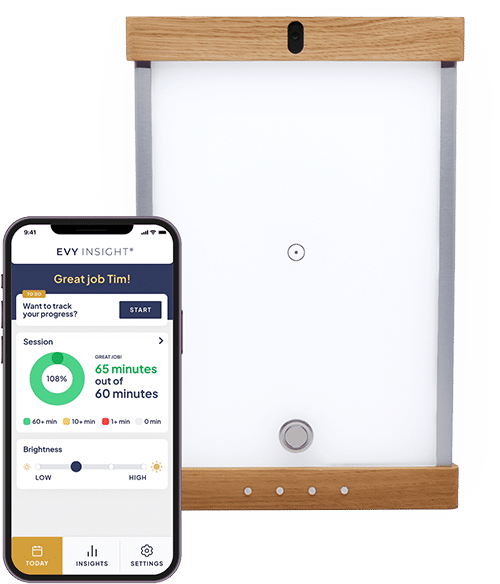Breaking the news of a dementia diagnosis to a loved one can be a daunting task. It requires empathy, sensitivity, and effective communication skills. This guide provides practical tips on how to approach this delicate conversation, manage denial, and offer support to your parents during this challenging time.

Christopher Ravn
Key Takeaways
1. Approach the conversation with empathy, sensitivity, and clear language. Use simple terms, avoid medical jargon, and listen actively to your parent's concerns.
2. Understand that denial is common in individuals with dementia. Be patient, supportive, and offer reassurance while providing information about the diagnosis and its implications.
3. Don't hesitate to involve family members or professionals for guidance, emotional support, and practical assistance in managing your parent's care.
Table of Contents
1. How To Tell A Parent They Have Dementia
2. What Techniques Can Help When Communicating About Alzheimer's?
3. Should I Tell My Mother She Has Dementia?
4. When Is The Right Time To Tell Your Parents About Dementia Symptoms?
5. How Do You Handle Denial When A Parent Refuses To Accept Their Alzheimer's Diagnosis?
6. Should I Involve Family Members Or Professionals When Telling My Father He Has Dementia?
7. Frequently Asked Questions About How To Tell A Parent They Have Dementia
How To Tell A Parent They Have Dementia
- Understand the parents’ physical, cognitive, emotional, and psychological needs.
- Know your parents’ medical histories.
- Search for local facilities that provide services for dementia patients.
- Seek aid from a healthcare professional, such as a doctor or neurologist.
- “Dad, we’ve noticed recently that you frequently forget your daily tasks.” I have spoken to a doctor and he thinks you may have dementia. Let us get you the necessary safety and support.”
- “Mom, we are concerned about your safety when you’re alone at home. Let us get you care and assistance from a memory care facility.”
- Your parents deny and resist your opinion.
- When someone becomes angry, it’s important to acknowledge their feelings without reacting.
- Support and validate their emotions if they are feeling sad.
What Techniques Can Help When Communicating About Alzheimer's?
- Non-verbal cues such as facial expressions, gestures, and body language.
- Listen actively to your parents’ tone, pitch, and volume.
- Adapt your communication style depending on the stage of dementia they are in.
- Always be patient and show compassion because they do not know what they are saying or doing.
- Create routines in order to provide your parents with familiarity and stability.
- Get caregivers to learn about communication, as this will minimize confusion. Also determine how long can a person with dementia live at home.
Choosing The Right Time And Place
- Select a place where there is no noise or interruptions.
- Ensure that your parent has privacy to talk.
- Reduce distractions by setting your phone on silent, choosing an off-peak hour, and choosing a place where the lighting and temperature are just right.
- Ensure that you are mindful of your parents’ daily routine, that time of day they are calm, and that your parents feel safe and secure.
Using Appropriate Terminology And Clear Language
- Medical jargon causes miscommunication and misunderstanding.
- Patients may feel overwhelmed and stressed.
- Use simple and easy language.
- Come up with analogies to make the issue relatable.
- Think and highlight the patient’s experience and feelings. Do not always talk about the symptoms and diagnoses.
- Do not assume that your parents understand concepts and medical terminology.
- Be kind and honest.
Being Supportive And Empathetic
- Recognize the feelings of your parents with dementia and actively listen to them to validate their emotions.
- Provide reassurance and support and respond without feeling overwhelmed or judgmental.
- Always stay optimistic by focusing on your strengths.
- Determine what is the difference between memory care and dementia care.
Should I Tell My Mother She Has Dementia
- Ensure that your mother’s rights are respected and that she maintains autonomy.
- Do not harm or cause distress but promote her best interests.
- Always make sure that she is treated fairly and justly.
- Take control of the situation.
- Make choices on her living and healthcare needs.
- Ability to seek support from family, friends, and healthcare professionals.
- Able to go through life by managing her conditions.
- Mentally prepare yourself to address her emotions.
- Select an environment that is calm and private.
- Find the time when she is normally free and in a positive mood.
- Explain the diagnosis that is simple for her to understand.
- Assure your mother that you will be there supporting her along the way.
Reasons To Tell A Loved One They Have Alzheimer’s
- Gain support from healthcare providers and come up with a customized plan.
- Understand the state of her disease and make the right choices for herself.
- Consult legal aid to make financial arrangements and provide power of attorney.
Join families who have found relief with EVY LIGHT®
Click below to see how EVY LIGHT® is helping others
When Is The Right Time To Tell Your Parents About Dementia Symptoms?
- Notice if they keep forgetting events, applications, or loved ones.
- Struggling to perform daily routines such as cooking, personal hygiene, or managing their finances.
- Keeps looping the same stories and gets confused
- Mood swings, agitation, and a tendency to withdraw are observed.
- Helps provide timely treatment.
- Allows your parents to prepare for the future and come up with the necessary arrangements in terms of financial and functional arrangements.
- Slows down cognitive decline and seeks emotional support.
- Ensure that the place is quiet and private.
- Do not talk about stressful and emotional issues during a crisis
- Have another person whom both of you trust present.
- Always ensure that you are coming from an angle of understanding and empathy.
How Do You Handle Denial When A Parent Refuses To Accept Their Alzheimer's Diagnosis?
- It threatens your parents’ sense of identity and independence.
- Are uncertain about the future and the impact on their lives.
- It triggers emotions such as anxiety, grief, and depression.
- Raises concerns about healthcare and financing issues.
- Acknowledge your parents’ feelings.
- Provide information about the progress of the disease, diagnosis, and implications.
- Create a safe space for your parents to vent.
- Provide emotional, proactive, and logistical support to your parents.
- Respect your parents’ desire for independence.
Strategies For Managing Resistance By Parent
- Recognize your parents feelings and concerns, and show understanding. This helps to reduce resistance and creates a safe space for conversation.
- Put yourself in your parents shoes and try to see things from their perspective. Reframe the situation to help your parents understand alternative solutions or behaviors.
- Establish clear rules for parents with choices and involve them in the decision-making process. This can help them feel more in control and invested in the outcome.

Should I Involve Family Members Or Professionals When Telling My Father He Has Dementia?
When it comes to involving family members or professionals, telling your father that he has dementia can be tricky. It depends on the situation and scenario that you are in. Therefore, let us look at the pros and cons of each support.
- Able to provide emotional support.
- Familiarize yourself with your father’s habits and personality.
- Share the burden of decision-making and caregiving.
- May have conflicting opinions.
- Can become overwhelmed by a diagnosis.
Involving professional
- Able to provide evidence and a neutral front.
- Offer guidance to manage symptoms. Medication and care options.
- Provide counseling and emotional support for you and your father.
- They are not emotionally connected with your father.
- Do not know your own habits and emotional needs.

How Can I Tell My Family Members That My Dad Has Alzheimer's?
- Find a place and time that is suitable to have this conversation.
- Be honest, and use simple language to explain the diagnosis.
- Gather your siblings and closest relatives.
- Encourage family members to share basic information about the diagnosis.
- Identify who will be the primary caregiver.
- Come up with a care plan with needs, medications, activities, and daily routines.
- Share responsibility for your parent’s care among family members.
- Schedule regular family meetings to review your parent’s health progress and next steps.
- Schedule regular family meetings: Hold regular meetings to review your parent’s progress, discuss challenges, and make adjustments to the care plan as needed.
Frequently Asked Questions About How To Tell A Parent They Have Dementia
What Are The Ways To Tell A Parent They Have Dementia?
- Understand your parents’ physical, cognitive, emotional, and psychological needs.
- Know your parents’ medical histories.
- Search for local facilities that provide services for dementia patients.
- Seek aid from a healthcare professional, such as a doctor or neurologist.
How Do You Handle Denial When A Parent Refuses To Accept Their Dementia Diagnosis?
- It threatens your parents’ sense of identity and independence.
- They are uncertain about the future and how it will affect their lives.
- It triggers emotions such as anxiety, grief, and depression.
- Raises concerns about healthcare and financing issues.











































